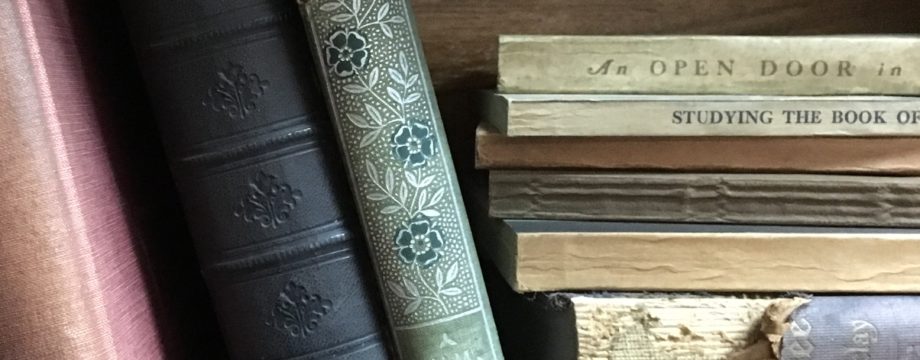A few weeks ago, I opened a book by Kay Arthur that takes Psalm 23 and breaks it out into individual devotional-type readings. I love Kay Arthur, and I’m a huge fan of the Psalms, so I figured we were on solid ground here. And we were. Until page 9, when she says this:
“Sheep are helpless, timid, feeble creatures that have little means of self-defense. They are among the dumbest of all animals, and because of this they require constant attention and meticulous care. If sheep do not have the constant care of a shepherd, they will go the wrong way, unaware of the dangers at hand. They have been known to nibble themselves right off a mountainside! They will overgraze the same land and run out of food unless the shepherd leads them to new pastures, and if they are not led to proper pastures, they will obliviously eat or drink things that are disastrous to them.
Sheep easily fall prey to predators, and when they do, they are virtually defenseless. Sheep can also become cast down and, in that state, panic and die. And so, because sheep are sheep, they need shepherds to protect and care for them.
If you belong to the Lord, you, Beloved, are the sheep of His pasture.”
Excuse me, Kay Arthur? Did you just call me helpless and feeble and dumb and weak? I am SO not any single one of those things. Ever.
Except that I am. Even if I wouldn’t own that, though, I know that God’s Word is inerrant, and His Word compares us to sheep. I’m also fairly certain that sheep look and act basically the same today as they did in the beginning. Still, I had trouble receiving Kay’s explanation. Normally I love for Biblical word pictures and analogies to be broken down and explained – it’s one of my favorite things about studying the Word. But in this case, well, it’s just unflattering.
Not only that, I had to wonder: is this my inheritance? To be this dumb, weak creature who doesn’t have a shred of good sense about her?
What’s funny about my bristling at Kay’s description of sheep is that not two weeks before that, I was absolutely reveling in the beauty of John 10, where Jesus says He is the Good Shepherd. My friend Bill Smith explained the shepherd’s role as gatekeeper in this way: the shepherd will lie down in front of the sheep pen and will physically be the gate to the pen. Not a single thing can get in without having to pass through him first. Oh, how I love that sense of protection, that deeper understanding of Romans 11:36, “For from Him and through Him and to Him are all things…”
It stands to reason that I found it considerably difficult to reconcile all of those lovely sheep and shepherd word pictures from John 10 with the stark reality of just how nutty sheep are. So I put it aside for a while, thinking maybe I could receive it more willingly another day. Say, in ten years? After all, I intend to be so much more spiritually mature by then.
Alas, ten years was too long to wait for peace in the sheep pen. Last Sunday’s sermon at Fellowship North focused on, you guessed it, Psalm 23. As it were, I had been flailing about in confusion all weekend over this one decision I’m facing and a word that had been spoken over me that I just couldn’t seem to interpret, much less receive, so the thought of being a helpless, harassed, confused and panicky sheep no longer offended my sensibilities. Plain and simple, it fit. I sat in the pew, feeling tired in that kicking-against-the-goads way, and Harold read verse two: “He makes me lie down in green pastures…” It sounded so lovely that I don’t remember a single word of the sermon after that – I was transfixed by the idea of how He makes us rest.
I wanted to know more, so I did some of my own research, and here’s what I found: when sheep are cared for by a truly good shepherd, they listen to that shepherd explicitly and will follow him anywhere. As a result, the sheep are not feeble and panicked and defenseless. They are calm, content and secure in their shepherd’s care. And that is the kind of sheep we get to be. Do you know that when Matthew referred to the various crowds Jesus spoke to and upon whom He had compassion as ‘harassed and helpless’, he reinforced that description with the comparison, ‘like sheep without a shepherd’? (Mt 9:36, emphasis mine) It is the shepherd who calms the sheep, who leads them, who hems them in. It is the shepherd who makes the sheep lie down. All of this was so comforting to me, for this reason above any others:
Therefore Jesus said again, “Very truly I tell you, I am the gate for the sheep. All who have come before me are thieves and robbers, but the sheep have not listened to them. I am the gate; whoever enters through me will be saved. They will come in and go out, and find pasture. The thief comes only to steal and kill and destroy; I have come that they may have life, and have it to the full. I am the good shepherd.”
John 10:7-11a
He is the good shepherd, immeasurably the best of all the good shepherds there ever were. And I am more than happy to be one of His sheep.
Now if you’ll excuse me, I have a Kay Arthur book I’d like to finish…


2 Responses to ‘Cause Sheep is What We Are